Crackdown on protesters in Georgia halted, demostrations resume in front of parliament
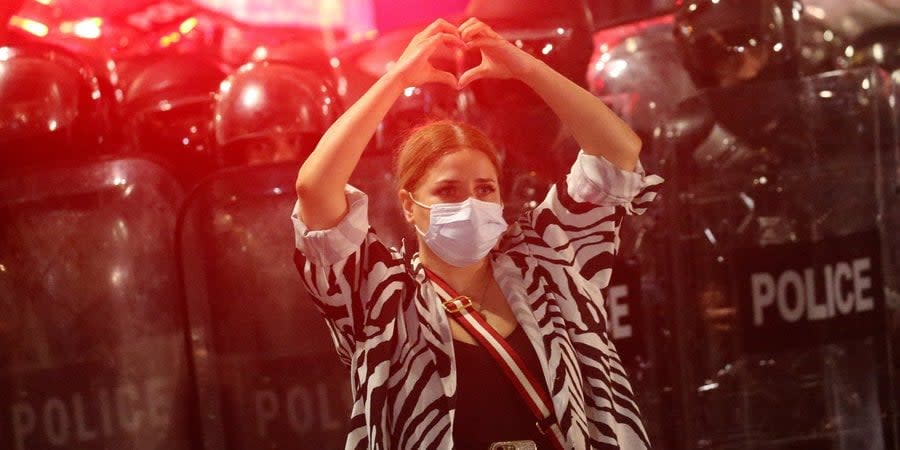
Protesters against the "Foreign Agents" bill returned to the Georgian parliament after special forces stopped their crackdown overnight on May 1, Echo of the Caucasus reported.
Discussion of the scandalous law will continue in Georgia’s main legislative body at 12:00 p.m. GET.
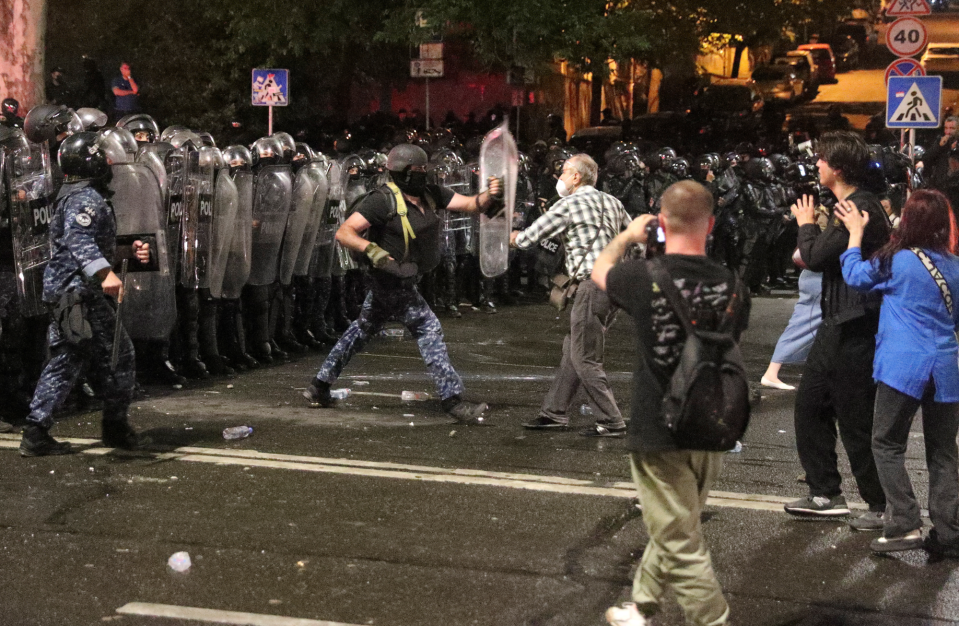
Police used tear gas against activists near the Georgian parliament building the day before. Some protesters claimed that rubber bullets were used.
There were reports of around 20 people injured, Echo of the Caucasus said.
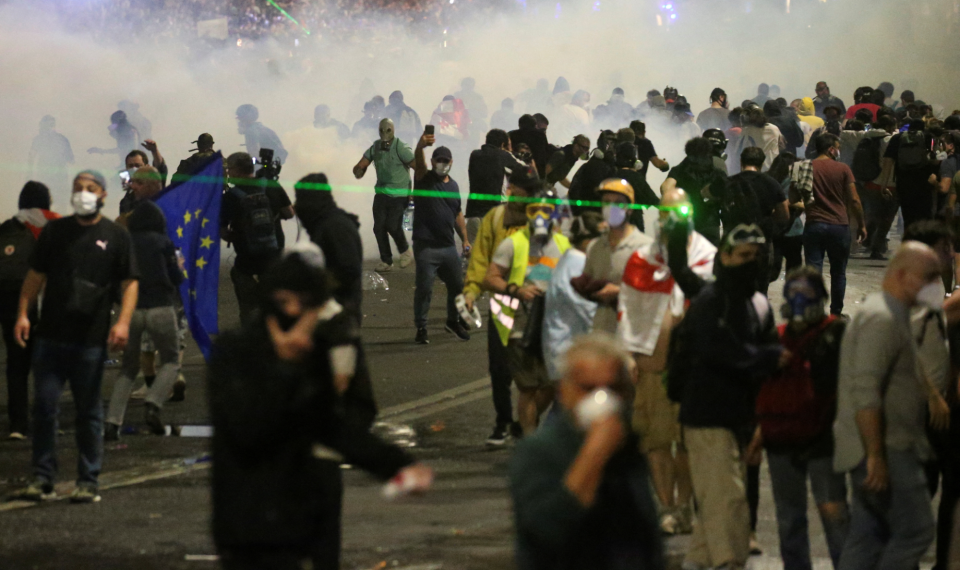
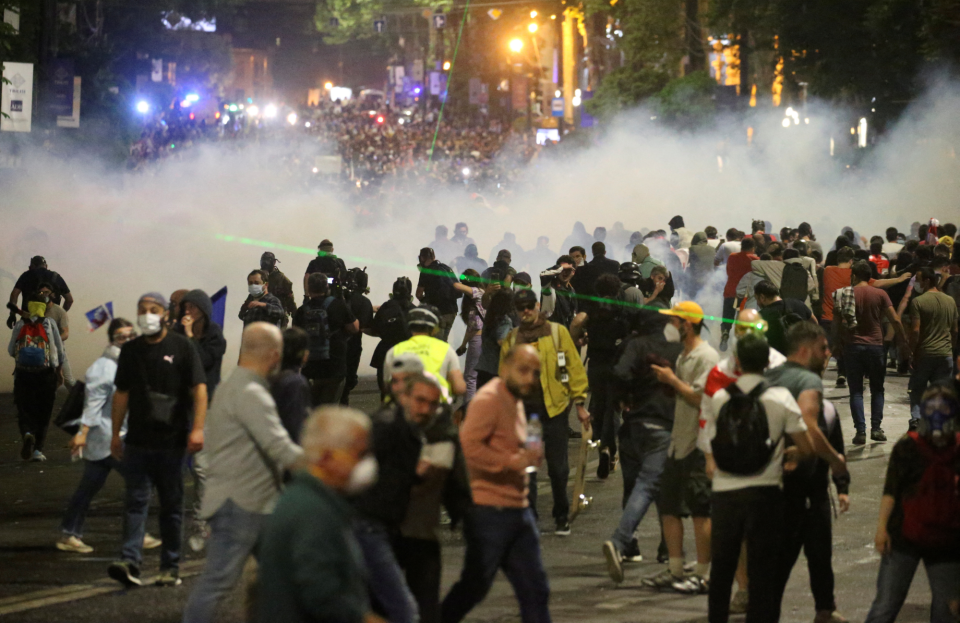
Georgia's Internal Ministry claimed that the peaceful protests "went beyond the law" and "turned violent" as protesters "verbally and physically opposed law enforcement officers, and shot various objects in their direction."
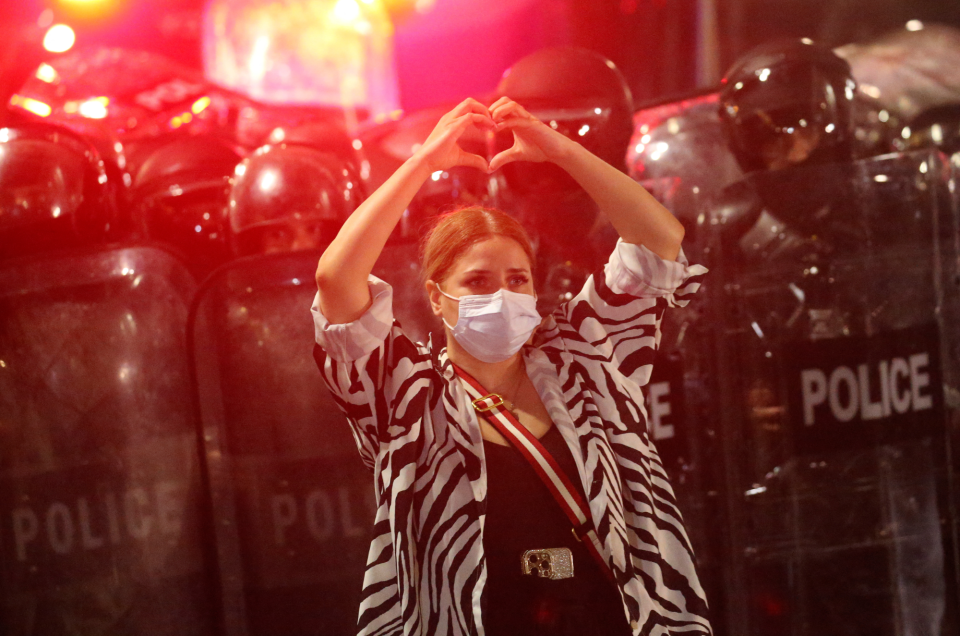
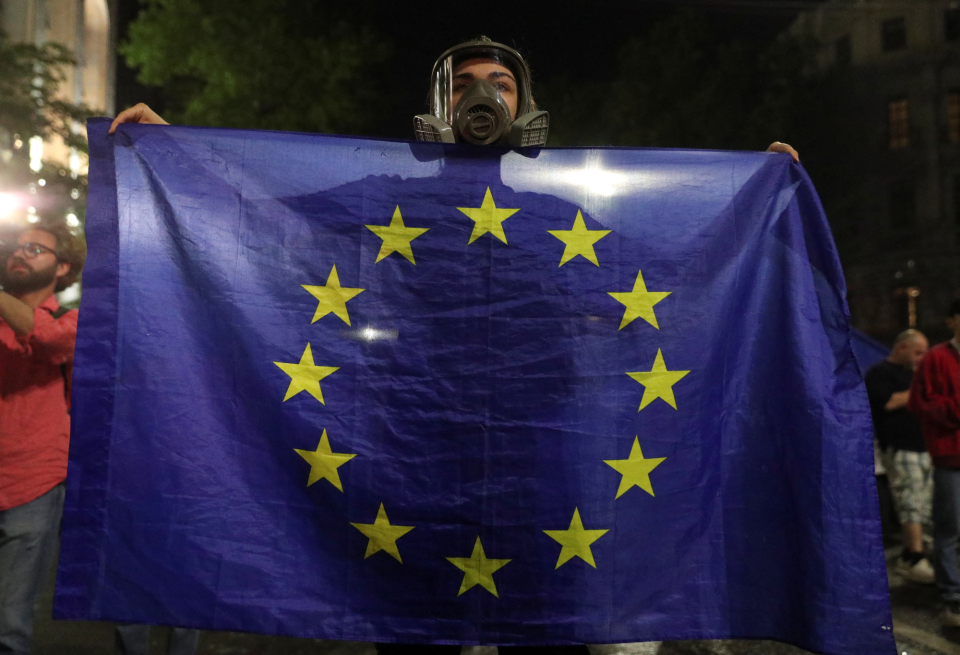
The "foreign agents" bill and protests in Georgia
A wave of mass protests has broken out in Georgia since April 9, after Mamuka Mdinaradze, the leader of the Georgian Dream parliamentary majority, announced that his party would re-submit a bill on "foreign agents" to parliament.
Security forces began to disperse demonstrators in Tbilisi on April 16.
The Georgian Parliament adopted the draft bill in the first reading on April 17.
Georgia President Salomé Zourabichvili promised to veto the legislation.
The "Foreign Agents" bill is supposed to protect Georgia from "Ukrainization", Georgia’s Prime Minister Iraklii Kobakhidze said on April 18.
Ukraine's Foreign Ministry dismissed the accusations, saying that Georgia should be worried about 'Russification' - the real threat to Georgia, not 'mystical Ukrainianization'. Using Ukraine in such a derogatory context "causes additional damage to Ukrainian-Georgian relations."
The law would be scrapped or rewritten should the EU say that Georgia is ready to become a member, Georgia's ruling party leader said on April 20.
The European Parliament adopted a resolution on the Georgian draft law on April 25. The document calls into question negotiations on Georgia's accession to the European Union so long as this law is in effect.
We’re bringing the voice of Ukraine to the world. Support us with a one-time donation, or become a Patron!
Read the original article on The New Voice of Ukraine

